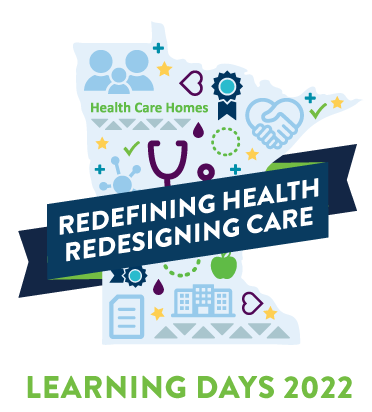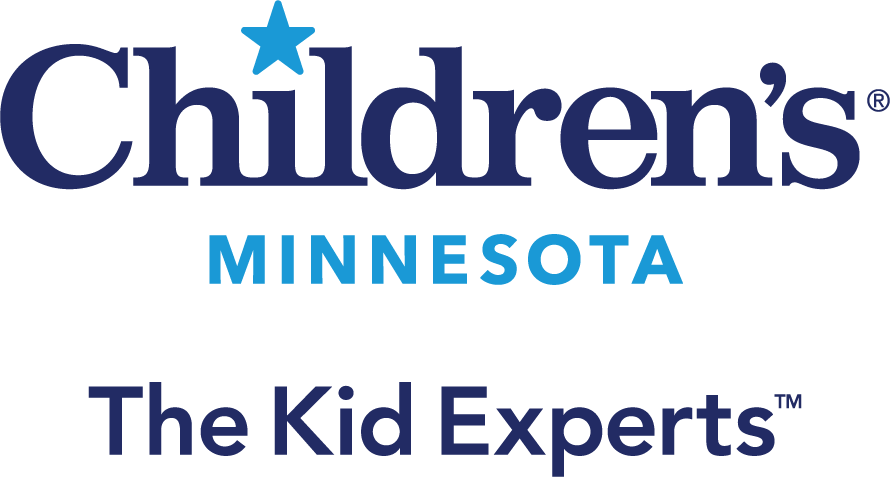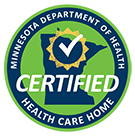March 2022 HCH Newsletter
The Connection

In this newsletter:
- Director's Message
- Register Now for Learning Days - April 28, 2022
- Community Connect: Children's Minnesota
- Do you have a Health Equity Story?
- Peer to Peer Learning Kicks Off!
- New E-Learning course
- Congratulations to Certified Health Care Homes
- Noteworthy
Director's Message
 Hello Health Care Homes!
Hello Health Care Homes!
HCH program partners have helped to shape and improve program processes and provide recommendations on progression of the HCH rule. With your help we have modified certification systems, updated ways to measure patient outcomes through the HCH benchmarking tool and engaged in developing important criteria for the advanced levels of HCH certification. On February 8th, the HCH team was able to show how stakeholder feedback has been implemented into HCH program processes and the great work participating HCHs have accomplished in supporting the MNCARES study at the State of the HCH presentation.
The new HCH rule is making its way through the rulemaking process and it is anticipated that a Notice of Intent to Adopt the Rule Without a Hearing will be published in the State Register for public review on April 4, 2022. HCH stakeholders will receive notice of the posting with access to the rule documents and the Statement of Reasonableness of Necessity document (SONAR). A high-level overview of the new rule follows.
- Establish level 2 and level 3 Health Care Homes standards.
- Make wording changes to 4764.0010 - 4764.0070 to clarify meaning.
- Align with law changes (recertification every 3 years) and delete unenforced timelines.
- Establish a process to reinstate HCH certification for clinics that have surrendered certification.
- Establish a process to recognize and achieve credit for other PCMH certification or accreditation programs (i.e., NCQA).
- Establish a process to provisionally certify or recertify any clinic experiencing barriers or challenges to certification or recertification at the foundational level.
- Repeal variance for superior outcomes and update variance language.
- Care plan standard: Updating the foundational certification requirements for the care plan standard to recognize improvements in technology and EHR implementation over the last ten years.
- Adding level 2 certification requirements to: identify and manage patient’s social determinants of health (SDOH), offer enhanced access options, use patient engagement and care delivery strategies responsive to patient’s cultural, health literacy, and linguistic needs, coordinate care using an integrated care team, share information, improve care transitions, support patient representation to the HCH quality team that reflects the population served and share information about health equity work.
- Adding level 3 requirements to: contribute to a community needs assessment to share information and prioritize population health issues utilizing a collaborative community process.
As we get closer to a new and advanced HCH rule we look forward to supporting you to obtain the advanced levels of certification. The Practice Improvement and Integration Specialists are available to review the updated rule with you and develop a plan for progression. Many of you already have criteria in place to meet level 2 certification and a some of you have criteria in place that meet Level 3 requirements!
- Reports of the feedback on the HCH Certification and Recertification and Benchmarking Processes can be reviewed at the here: Health Care Homes Program Evaluation Process Improvement - Certification and Recertification Process Assessment webpage.
Best,
~ Bonnie
Register Now for Learning Days - April 28, 2022

Don’t miss this annual opportunity to meet with peers from Health Care Homes and community partners for a full day of learning and inspiration. This year’s virtual event will focus on how COVID-19 has impacted primary care practice and providers and offer resources and encouragement for the future. The agenda will feature a variety of peer-led breakout sessions and workshops, as well as opening and closing keynote speakers.
Visit the Learning Days website for information on learning and sponsorship opportunities, registration and updates. Connect with others attending the event through the new Community feature!
Community Connect: Children's Minnesota

Community Connect helps families find critical resources and thrive
Children’s Minnesota, the largest pediatric health system in the state, knows that good health requires more than good health care. Kids’ experiences at home, in school, and in their neighborhoods are the biggest drivers of overall health and well-being. As part of a comprehensive model of care, the Community Connect program addresses the broader social determinants of health, connecting families in the Minneapolis and St. Paul Primary Care Clinics to existing community resources, including food pantries and benefit programs, transportation services, legal assistance, housing support, early childhood education programs, employment search assistance and much more.
How Community Connect works
The process begins when families at primary care appointments fill out a simple yes-or-no form that asks about their access to nutritious food, adequate housing and other social needs. Screening responses trigger real-time referrals to the team of resource navigators who work with the family to determine which resources may be most helpful. The resource navigators tap into a network of community partners, facilitate warm hand-offs, and then continue to support the family to ensure they have access to the resources they need to be healthy.
Particular attention is given to families of color and Native American families who experience greater disparities in health outcomes. “When we hire resource navigators, we intentionally hire people from the communities that they serve,” said Jessica Block, community health programs manager at Children’s Minnesota. “It is very important to us to have that cultural congruency and allow families to have what sometimes can be sensitive conversations in their own language.”
The proof is in the data
Over the course of the pandemic, there has been an increased demand for the support of the Community Connect program, with as many as 46% of patients identifying a need for support in a single month. The community health programs manager stated, “We saw a drastic increase in our positive screen rate as a result of the pandemic. In fact, still today, we're seeing about a 34% positive screen rate, whereas before the pandemic hit, it was about 25%.” Almost 4,000 families enrolled in the program in 2020 and 2021 and the largest need, reflecting over half of the families served, is food resources.
A robust evaluation of Community Connect data has clearly demonstrated that addressing social determinants of health improves the health of kids, giving them a strong foundation to thrive. Across program participants, the following was noted:
- Increased preventative care services and well-child visits
- Decreased emergency room visits
- Increased well-controlled asthma
- Increased patient/family satisfaction and self-reported improvement of family health and well-being
*The Community Connect program received a MDH HCH Innovation Award in 2019 and was recently selected as a Top Finalist for the inaugural Bernard J. Tyson National Award for Excellence in Pursuit of Healthcare Equity by The Joint Commission and Kaiser Permanente.
Do you have a Health Equity Story?

Certified Health Care Homes -
Do you have a Health Equity Story that you would like highlighted in the HCH newsletter?
Download the Health Equity Story Form and follow instructions for submission.
Peer to Peer Learning Kicks Off!
![]()
Over 60 Health Care Homes stakeholders came together on March 15 for the launch of the new stakeholder driven peer to peer networking series. This pilot program, which was designed and led by Health Care Homes stakeholders for Health Care Homes stakeholders, featured peer networking around the topic of social determinants of health. Thanks to Kristi Van Riper, University of Minnesota Physicians, and Kristen Godfrey Walters, Hennepin Healthcare, for facilitating the first event.
Mark your calendars now for our next event on May 10 at noon, when Savannah Aultman, Alomere Health, will lead a one-hour peer to peer discussion on Care Planning, Goal Setting and Registry Review. Take a break, grab your lunch, and catch up with your peers!
New E-Learning: Using the Collaborative Care Model to Integrate Behavioral Health into Primary Care
![]()
Check out the latest Health Care Homes e-learning to see how organizations in Minnesota and nationally are integrating behavioral health and primary care through the Collaborative Care Model. Explore how this evidence-based model is improving outcomes for primary care patients with behavioral health needs and consider action steps for implementing the model in your organization.
To register, visit the MDH Learning Center.
Congratulations to Certified Health Care Homes

Clinics recertifying January - March 2022 are listed below. Congratulations to these and other certified clinics working every day to provide better health and better care at lower cost!
Recertification
- North Memorial (14 clinics)
Noteworthy

- The Office of Disease Prevention and Health Promotion has added 5 new consumer-friendly handouts based on the Dietary Guidelines for Americans, 2020-2025 to their Toolkit for Professionals. The new handouts take a life stage approach and reflect the science-based nutrition guidance in the current edition of the Dietary Guidelines.
- The Minnesota Department of Health (MDH) has released a 10-year strategic framework to improve the health care and quality of life for over 422,703 Minnesotans who have asthma. The framework focuses on closing health equity gaps related to asthma and reducing the burden of uncontrolled asthma. Read the Framework: Asthma in Minnesota: A Strategic Framework 2021-2030.
- MN Community Measurement Issue Briefs released in January 2022: